Thomas Hendrix (MSL ’21), is a founding partner of Decisive Point – a venture capital and strategic advisory firm focused on emerging technology for government and defense. He graciously agreed to chat with us about his career path and experience in GW Law’s Government Procurement MSL program and offered some advice for current and prospective MSLs.

Interview With Thomas Hendrix
Tell us a little about your background – before you enrolled at GW Law.
My path to GW Law was most definitely non-traditional. After graduating from West Point I served in the Army as an Infantry and Special Forces Officer for ten years. After leaving the military I earned an MBA from Columbia Business School and worked for Blackstone in New York. While I was there, I had the idea of forming my own business and in 2018 started a venture capital and strategic advisory firm focused on emerging technology for government and defense called Decisive Point.
Why did you decide to pursue an MSL degree in Government Procurement Law?
At the time that we started our business, innovation efforts within the Department of Defense and government more broadly were really just starting to turn their attention to non-traditional contractors — or start-ups. We were early to the market and got our start by working with companies as they navigated market entry and R&D programs within the government. Because our focus was really on the transition from R&D into larger, more sustainable government programs, a firm understanding of federal acquisitions was necessary. One of my Co-Founders was previously a GS-15 Contracting Officer for the Navy, but I wanted to have more than a basic working knowledge of the FAR, contract types, and compliance related issues. The MSL program at GW Law was a perfect fit.
Did anything surprise you about attending law school?
I had assumed that because the MSL degree program is separate from the traditional law school curriculum and I was a non-attorney student in classes with many JD and LLM candidates I would find myself behind the curve in my classes. However, because the law school is extremely collaborative, I soon learned that we spent a great deal of time learning from our peers and the professors highly encouraged dialogue in classes to pull in examples of practical, real-world experience to further illustrate the course material. Where I lacked some knowledge related to a few specific legal areas, I was able to learn quickly from these discussions and contribute in other areas related to business, finance, and innovation.
What were some of your favorite aspects about attending law school?
GW Law has really embraced the MSL graduates as members of the law school community. I’ve regularly reached out to Dean Tillipman and Professors Yukins and Schooner with specific questions or for advice and we’ve even been fortunate to have Professor Liza Craig join us as a member of Decisive Point’s Advisory Board. The faculty is wonderfully proactive and consistently seek opportunities to make helpful connections and support alumni.
What have you been doing since graduation?
Building a business is a lot of work! Since graduation I’ve been deeply immersed in fundraising, making investments, and supporting our portfolio companies. We’ve also been growing rapidly; hiring the right people is extremely important and it’s quite time consuming. (Read: We are always looking for newly minted MSL graduates)
What advice do you have for any prospective students who may be considering an
MSL in Government Procurement Law from GW Law School?
The government is a massive customer and spends a tremendous amount of money on research and development; for certain industries it is essentially a monopoly, or single buyer market. The MSL degree program is for anyone who works in industries that work closely with government and wish to tap into the buying power of the federal enterprise. As an investor, understanding the way the government invests in emerging technologies is a strategic advantage.
What advice do you have for current MSL students?
Look beyond the government, large prime defense contractors, and traditional government service firms post-graduation. The technology, consulting, and financial services industries have awoken to the value of accessing the federal market. The MSL program has given you some uncommon and hard-earned skills that are valuable in nearly any industry.


